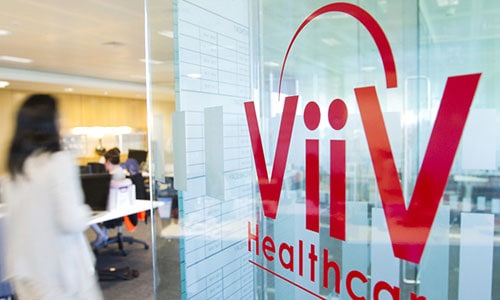Hello and welcome to another round up of the day’s headline events in pharma, biotech and healthcare.
The wedding of Prince Harry and Meghan Markel in a sunny Windsor put a smile on lots of people’s faces in the UK on Saturday, with a global television audience of around 1 billion tuning in.
Attempting to sustain this feelgood factor, and put aside the divisions of Brexit, Prime Minister Theresa May has unveiled a pledge to invest millions in Artificial Intelligence (AI) in order to transform diagnosis of cancer and chronic disease on the NHS.
UK to invest millions in AI early cancer diagnosis
The hope is that the investment in tech can transform outcomes through early diagnosis and treatment, with a goal for at least 50,000 people to be diagnosed at an early stage of prostate, ovarian, lung or bowel cancer each year.
It is thought that AI could help prevent 22,000 deaths from cancer each year by 2033, and give patients an additional five years of healthy life by 2035 – and relieve some of the growing burden on the health service.
The project aims to exploit the NHS’ database of patient data, which is one of the largest and most complete among healthcare systems, but has been hampered by its slow move to ‘interoperable’ electronic records.
An outcry over plans to allow researchers to access NHS patient records in 2014 via the care.data scheme also set back progress. This week is also an important inflection point for NHS data, with patients being given a chance to opt out of sharing their data on 25 May – the same day as new tighter European data privacy rules, the GDPR, come into force.
The government believes tech companies’ ability to conduct large-scale data analysis could bring together genetic and medical data to produce algorithms to help primary care doctors identify potential cancers far earlier.
However, there are plenty of obstacles to making this vision a reality. Waiting times for cancer diagnosis have lengthened in recent years because of overstretched services and lack of funding for the NHS.
The news was nevertheless welcomed by businesses working in the sector. Jackie Hunter the CEO of BenevolentBio, one of several UK-based AI drug discovery AI specialists said:
“AI has the potential to revolutionise all aspects of healthcare – not only in delivery and early diagnosis of disease but also in the ability to find new medicines and ensure they are delivered to the right patients,” said Hunter. “It is also important that the UK maximises its human capital and ensures that all students have the ability to study data science and its applications in a range of areas including healthcare.”
Mike Thompson, chief executive of the UK pharma industry body the ABPI, said:
“Today’s speech by the Prime Minister’s sends an important message about the need to improve cancer outcomes for NHS patients and this is a welcome commitment. Improved use of health data and AI will be critical to achieving success.”
He pointed to research which suggests the UK lags behind the rest of Europe for five-year survival rates for many common cancers, and has the worst outcomes in the EU for lung cancer.
Thompson welcomed the measures – but naturally also concluded that swift access to the new and innovative cancer medicines and other therapies was also necessary.
Read more from The Guardian
EUROPE
EU approval for ViiV’s Juluca

New HIV treatment Juluca has gained marketing approval in Europe, opening up a new battleground in the market between ViiV Healthcare and its arch-rival Gilead.
Juluca is the first 2-drug regimen, once-daily, single-pill for the treatment of HIV, and as such represents a new level of convenience for patients taking medication every day for the rest of their lives.
It combines ViiV’s own Tivicay (dolutegravir) the most widely prescribed integrase inhibitor worldwide, and J&J’s Edurant (rilpivirine).
However Gilead has its own direct competitor, Biktarvy, which combines the novel integrase inhibitor bictegravir with Gilead’s Descovy, a combination of emtricitabine and tenofovir alafenamide.
Juluca and Biktarvy are already both on the market in the US, and Gilead’s drug is expected to gain final European approval very soon.
PHARMA
AstraZeneca shareholder revolt
AstraZeneca’s chief exec Pascal Soriot faced a shareholder rebellion over his pay late last week, with investors accusing the company of rewarding underachievement.
AstraZeneca’s shares fell on Friday after it unveiled profits down by 36% year-on-year to $374m, with revenues also narrowly failing to hit consensus estimates of $5.18bn.
Mr Soriot’s recommended total pay package has been trimmed to £9.4m this year, down from the £14.3m which also caused a shareholder rebellion last year.
The reduced salary wasn’t enough to quell the disquiet, however, with shareholders egged on by ISS, a proxy advisory firm whose recommendations are often followed by shareholders. They had urged investors to vote against the remuneration, saying targets had been not challenging enough, and that concerns raised at last year’s AGM had not been adequately addressed.
Nevertheless, the remuneration report was approved by 65% of shareholders who voted – this was slightly better than the 60% last year, but still showing more than a third of shareholders rejecting the policy.
AstraZeneca said it was “disappointed” that enhancements made to remuneration in response to shareholder feedback have not significantly improved the voting result.
It pledged to continue to work with shareholders to “best address their concerns”.
While worse than expected, the Q1 results were broadly in line with forecasts, and Soriot says AstraZeneca will see a return to growth in the second half of this year, once the worst of the Crestor expiry has passed.
The company has a number of promising new cancer treatments, and has just received FDA approval for the delayed hyperkalaemia drug Lokelma.
DIGITAL HEALTH
The inside story of Theranos’ health tech fraud
Published today is the book by Wall Street Journal reporter John Carreyou, Bad Blood: Secrets and Lies in a Silicon Valley Startup. It tells the story of Theranos and its founder Elizabeth Holmes, pictured below in one of many magazine covers she adorned promoting a technology which it, eventually transpired, simply didn’t work as she had claimed.
Carreyou played a key role in exposing the sham of Theranos, and tells the story of how Holmes and a core of senior Theranos executives spun their elaborate fraud around the company’s ‘revolutionary’ blood testing technology. The book provides a cautionary tale of privately-held ‘unicorn’ tech start-ups and unquestioning investors caught up in hype and the promise of riches.

Read more at WSJ:
How One Company Scammed Silicon Valley. And How It Got Caught.




